
NBCBLK is celebrating Black History Month with the theme “Black History Is Our History: Black history. Your history. Our history.”
During the month of February, we not only want to take the opportunity to highlight and recognize the accomplishments of African-Americans and the black community, but also remind others of the historic contributions of immigrants to the United States.
All month long, we invite you to join in on the conversation and share your black history with us on social media using the hashtag #BLKHistory. Below are thoughts from a few of our NBC anchors and correspondents, leadership, contributors and other members of our NBC family on their #BLKHistory that we will update throughout the month.
Sarah Glover, President, National Association of Black Journalists
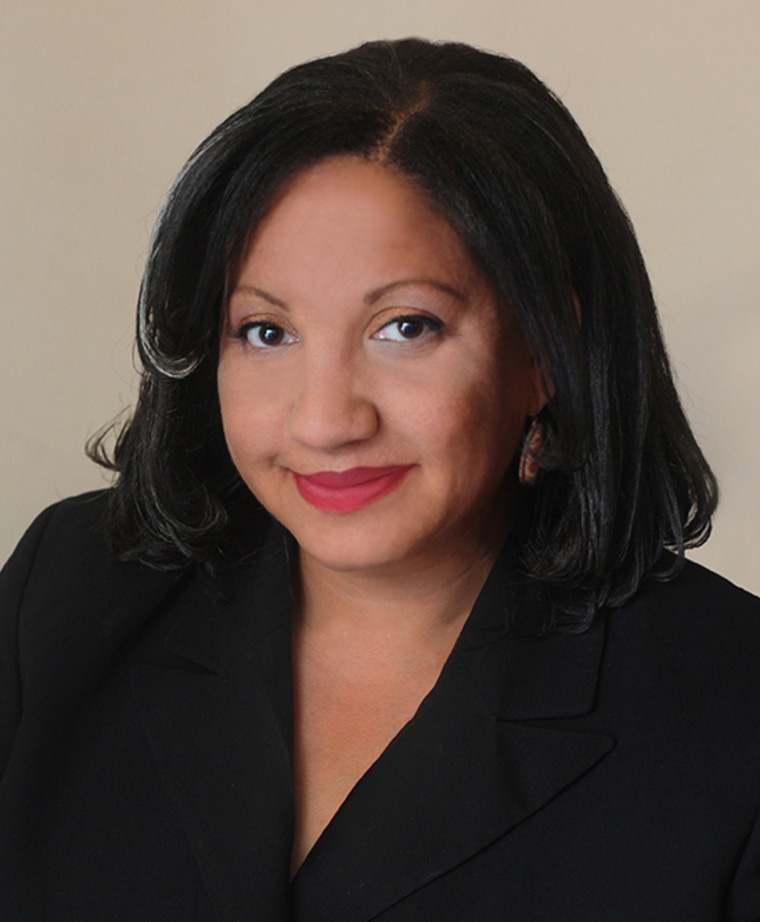
"Black History Month (BHM) is a time for storytelling, celebration and hope.
Telling stories across generations is entertaining and a common practice of all people. This is why BHM and the awareness it brings is something everyone can relate to.
Oral storytelling has rich African origins. The oral transfer of knowledge form one generation to another is vital to cultural existence and a practice that has sustained black traditions across the diaspora for centuries. A griot, an oral historian or guardian of knowledge and a well-known figure in West African culture, provides perspective to our youth, informing their future.
BHM is like the griot to society at-large.
BHM is a time to celebrate, thanks to the forward-thinking efforts of Carter G. Woodson more than a century ago. Woodson sought to validate the achievements of blacks, and created an observance later transformed into a monthly celebration.
African-Americans have a beautiful, rich history and are as diverse and unique as the rays on a rainbow. African-Americans represent every hue, with ethnic origins from Africa, the Caribbean, Latin America and from all over the world. They are a people who have overcome obstacles, built this country and made it better, stood up for what is right, and contributed to many American firsts, such as helping to get a man on the moon (Katherine Johnson) and contributing to a billion-dollar revenue-generating feature film with a majority black cast (Black Panther).
BHM is a moment to think about the progress of black people, and also presents an opportunity to reflect on how much more work there is to do because Martin Luther King Jr.’s dream is not realized until there is equality for all — and that’s worth continuing the fight for justice for.
It’s an honor to be a working journalist and to make a living reporting, and telling stories. I thank the many journalism pioneers who gave me their oral histories and showed me the way to the career I have today, like Pulitzer-prize winning journalist Acel Moore.
I make BHM an intentional action step in my life every year. I seek out educational opportunities to learn something new that I did not already know about African-Americans and others. I travel. I research. I read. I talk to elders in my communities and every day unsung heroes I meet on my travels. I also challenge those around me to do the same — to be deliberate in your thirst for knowledge and empathy.
When you celebrate Black History Month, you are indeed celebrating American history.
So I challenge you to learn more about: Martin, Ida, Carter, Barack, Frederick, Colin, Marian, Maya, Oprah, Hank, Muhammad, W.E.B., Duke, Rosa, Thurgood, Prince, Magic, Sidney, Stevie and Acel. Take their inspiration and life lessons and tell their stories to the youth in your life. Black history is our history. It is everyone’s history. It’s vital to preserve, teach and know more about every year."
Sarah Glover is a social media editor at NBC Owned Television Stations.
Raelyn Johnson, Executive Producer, MSNBC
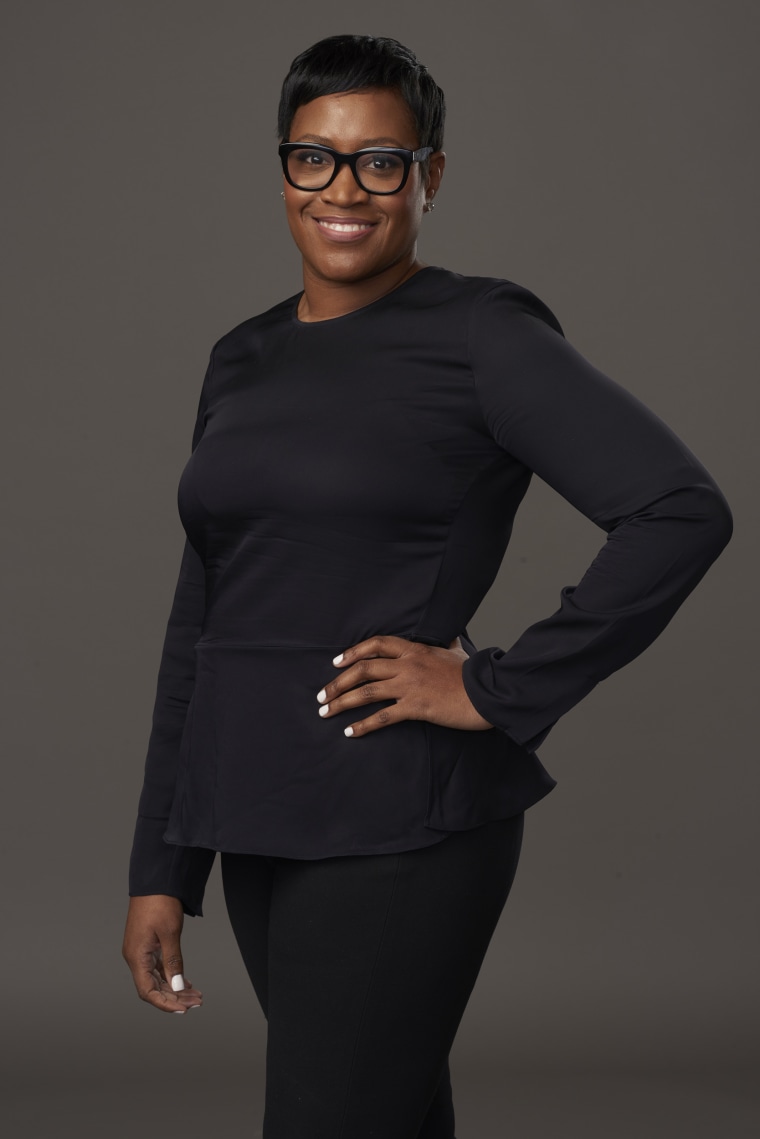
"I grew up with so much love, that I rarely saw color. A painfully privileged thing to say, given that I am the granddaughter of a “domestic” and the daughter of a man who grew up in the segregated south. I treasure the fact, that I am the first person in my family to graduate from college.
My professional journey has led me to cover politics. Phone calls with my father from rallies in Iowa always started with, “How many of ‘us’ are there?”
By the end of that election, this nation elected its first black president.
My father finally stopped counting, but I understand why he did. In the 50’s, he attended Sterling High, the first public black high school in Greenville, South Carolina. A brick building, built by Reverend D. M. Minus, the son of a slave. The name “Sterling” is a nod to Mrs. E.R. Sterling, a white woman who paid for Minus’ education. Minus once said, “It will take eternity to tell the good she has accomplished for the uplift and elevation of suffering humanity.”
In 1967 a suspicious fire broke out at Sterling and it is no longer standing. Separately, my father is no longer living. But his dreams are. I am enjoying my freedom to document history. And my brother is a Reverend at a church, also a brick building, where everyone is welcome.
I imagine a world as welcoming, this February, and every month after. Eternally.”
Sheinelle Jones, Anchor of Weekend TODAY/NBC News Correspondent

"I was born in Philadelphia, Pennsylvania but grew up in Wichita, Kansas. Looking back, I am so thankful for such a vibrant and active African-American community. For us, “black history” wasn’t just a month — it was every month. My mom is a teacher and a storyteller. Early on, she “infused” black history into our education, so much so, that I didn’t realize there could be anything different! I learned about Carter G. Woodson, Garrett Morgan and so many trailblazer, that if it weren’t for all of the programs at church and in the community at large, I probably wouldn’t know anything about these men and women who changed the course of American history. When I was in high school, I was part of a traveling Black History Troop. We would go to the local schools and universities and put on a program about black history. We would even do African dancing with live drummers, it was always so electric! It was a huge part of my high school experience.
Even beyond the formal programs, I grew up memorizing poems and literature that spoke of empowerment and the importance of self-worth. There is no doubt about it: knowing my history and being proud of who I am, is part of the fabric of the woman I am now.
Fast forward to today, I’m living in Harlem here in New York City with my own three children. I giggled when I realized my 8-year-old son learned the same song about Dr. Martin Luther King that I did back in Wichita. Now we sing it together. But it CAN’T end there and now I’m realizing, how frankly “most” of what I learned about black history happened because of what I learned “at home.” So on this day, I am recommitting myself to following the example of my mother — infusing black history not just during the month of February, but every month.
I leave you with a call to action, and I promise, I’m challenging myself as well. What are we going to do today to teach a young person about his or her history? Maybe something they’ve never learned before. Let’s use all of the resources we have at our fingertips, thanks to technology.
One final thought…It’s not just about the history of others, it’s your own family history. My maternal grandmother gave us a gift years ago by writing our family history. It let me know that in addition to all of the trailblazers whose names/bios I memorized, there are history makers in my own family."
Rashida Jones, Senior Vice President of Specials for NBC News & MSNBC
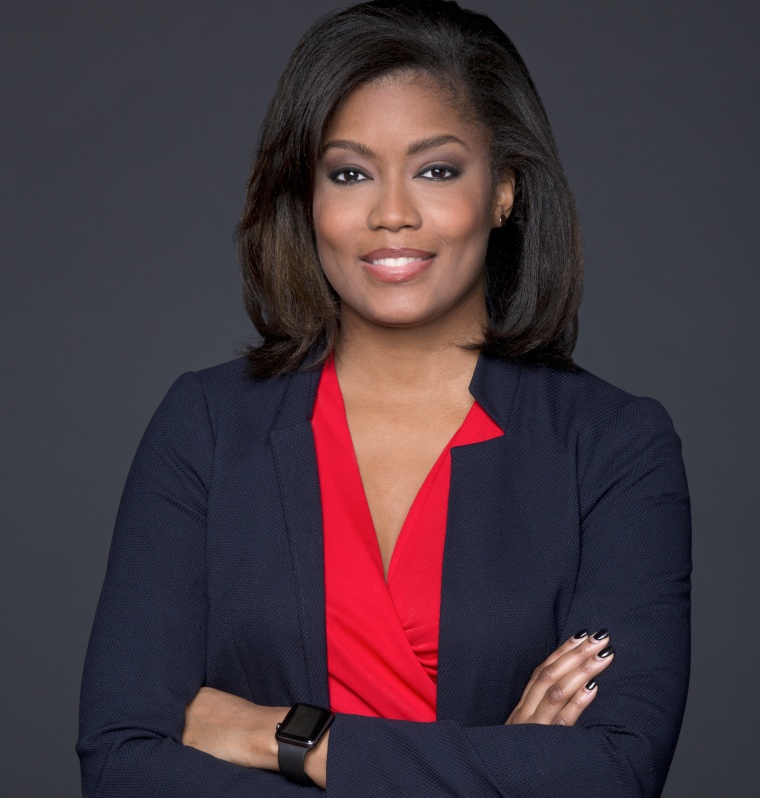
"Growing up, I was acutely aware of my “blackness”. I was born into a family whose parents were incredibly active on the front lines of the Civil Rights era. We learned daily about the struggles and successes of our ancestors. We were immersed in Black history through our young lives. But we didn’t call it “Black history”, we just called it history.
As a mom now of two young, sharp, impressionable minds, I think about how to bring that same organic awareness into their lives. We talk about the struggles we’ve overcome. The racism we endured. But as my 9-year-old daughter Laila reminded me, it’s also important to focus on our successes, our contributions to society and the talent and drive that exist in our culture today. It’s important to celebrate THAT part of our heritage as well. Our fingerprints are all over the fabric of this nation, both through history and today. Black History Month is an opportunity to look at our past and how far we’ve come, to look at what we have done now to change this world, and the heights to which we can soar in the future."
AL Roker, Co-Host of TODAY Show
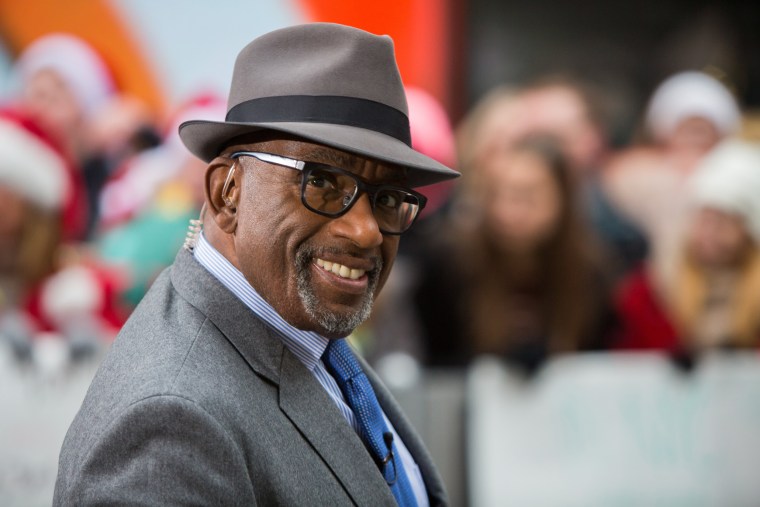
"Growing up in NYC in the 1960s, I remember watching Bob Teague on WNBC. He was the first black local TV reporter in NYC and as riots tore the city apart after the assassination of Dr. Martin Luther King, Jr. Bob was sent into these situations and reports with intelligence, grace and accuracy.
It made such an impact on me, that here was someone who looked like me, doing something that it seems no one else could do and doing it better than anybody.
Fifteen years later, walking into the WNBC newsroom as the weekend weatherman, I got to meet Bob Teague. As I stammered something banal about watching him growing up, he laughed, shook my hand and welcomed me.
It was important then for kids to see someone who looks like them and it’s even more important today."
Chandelis R. Duster, NBCBLK
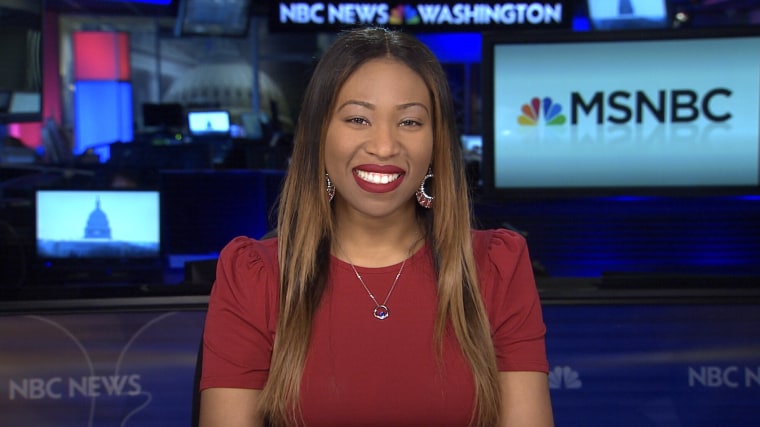
"Growing up in the Deep South, I became well aware at a young age of what racism was. Living in Florence, Alabama, a small city in the northwest corner of the state, my parents, who were the first black firefighter and first black deputy director of the Emergency Management Agency in the county, broke barriers in their own way, following their dreams while standing in the face of adversity.
They instilled in me the mental fortitude and strength to stand for what is right and to have integrity when facing my own obstacles — to do it with love and compassion.
For me, Black History Month isn’t just about celebrating the achievements of African-Americans, it’s about acknowledging the painful webs of the dark past of this nation, learning from those experiences and moving forward as an instrument of change to better the future of generations to come. I chose our theme, “Black History Is Our History”, to embody that sentiment and to remind people to never forget those who came before us — to reflect on their sacrifices at a time when our deeply divided country needs healing.
Every one of us must look in the mirror and appreciate the beautiful essence of our ancestors that has been passed down upon us, but not forgetting the mantle of struggles they faced in order for us to have opportunities. Now more than ever, we must continue the dialogue of race and the important sacrifices made not only by African-Americans, but by black immigrants to our country because without their courage and resilience, we would have nothing. Black history is OUR history and a stepping stone for our future. We must be connected to our past in order to change our future."
Joy Reid, Host of AM Joy MSNBC
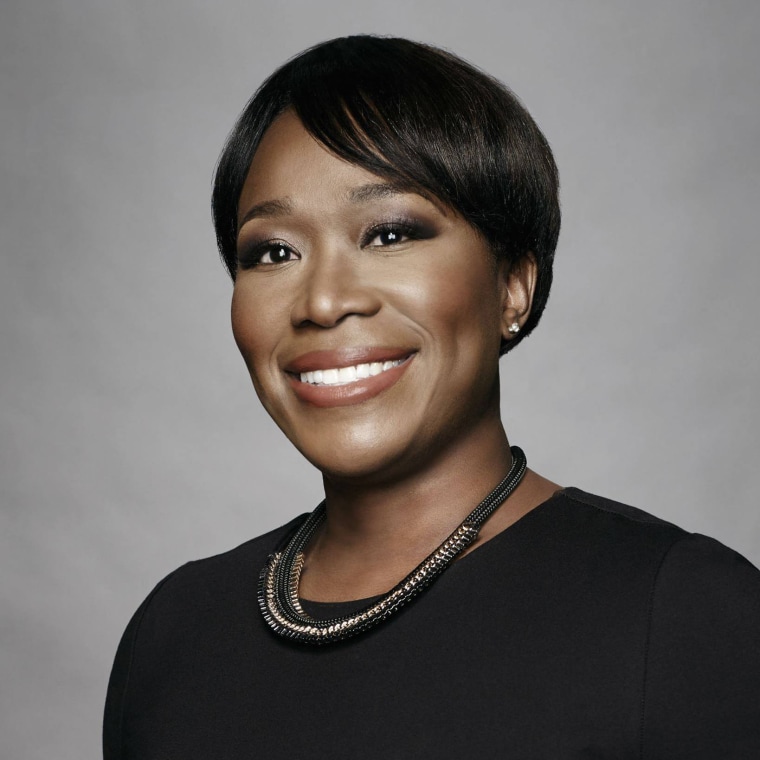
"When my parents came to the United States from Guyana and the Congo in the 1960s, they came seeking what all immigrants seek: the opportunity for a better life for themselves, their children and their progeny. The Trump era has highlighted the need to remember the universal humanity behind these desires that prompt vulnerable people to uproot themselves and take a chance on the American dream. We are a nation of migrants, some voluntary, as in the case of my father; others involuntary, as is the case for my mother and other Caribbean-Americans and African-Americans who are descended from the victims of the Transatlantic Slave Trade.
Yet, regardless of the means of our arrival on these shores, our very human need to grow, to love, to form family bonds, raise children and pursue our rights to "life, liberty, and the pursuit of happiness," not only unite us as African-Americans; our great achievements despite the systematic denial of these rights continues to spur us all on to reach for these ideals and win despite all obstacles.
Black History Month is a time to remember the incremental steps, major trials, spiritual tribulations, and ultimate triumphs that brought us here, celebrating the black excellence that has truly made America great, even when troubled and evolving. Through our great American melting pot, seasoned with influxes of black patriots and trailblazers, thought leaders and cultural trend-setters, writers and musical savants, laborers and geniuses, grandmothers, sons, brothers, sisters and heroes throughout the generations, America can achieve and sustain greatness.
I am proud to be the child of just one of many immigrant tributaries flowing into the great river of African-American progress."
Ron Allen, NBC News Correspondent
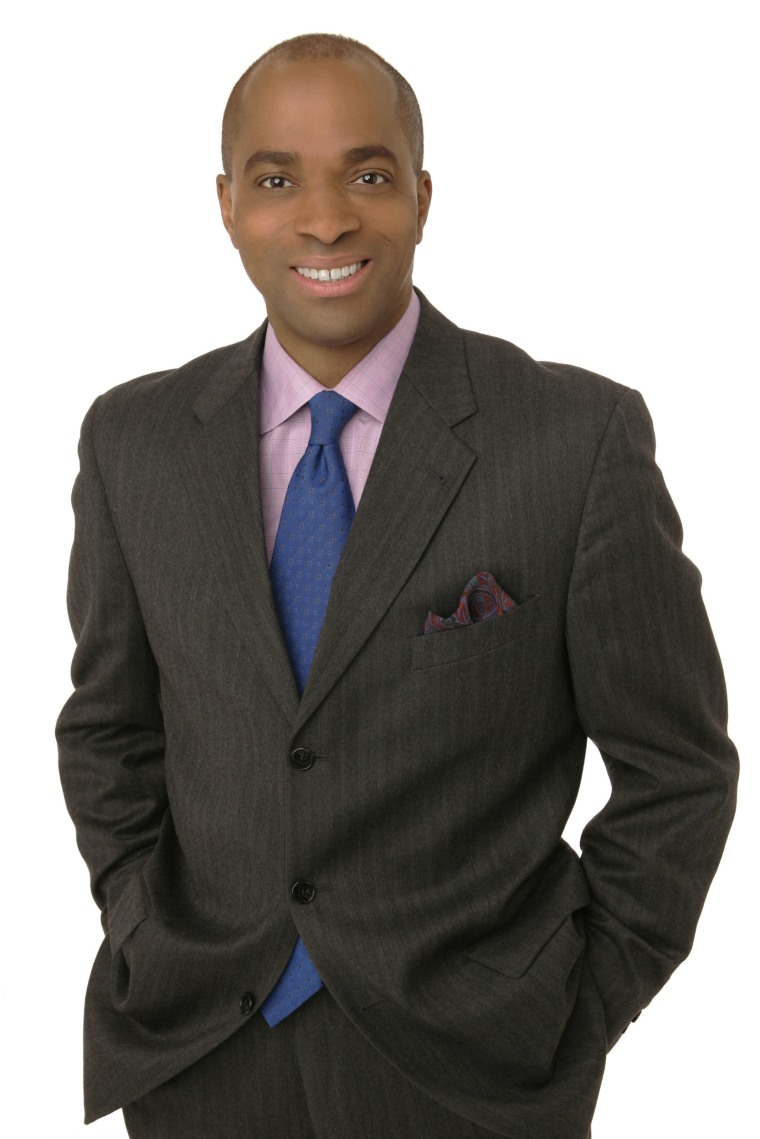
“My 9-year-old daughter, Siobhan, asked me the other day, ‘Why is there only one month for Black History? There should be more!’ I told her, this time every year, I look forward to the day when we don’t need a special month, because the contributions of African-Americans like everyone else, are appreciated, understood and celebrated every day. I said to her, I look forward to the day when everywhere, she and other kids look in pop culture, media, government, corporate America and elsewhere — it’s easy for them to find positive strong images that look like her. That’s especially a concern now, because we live in such divisive and intolerant times.
During Black History month, and all year for that matter, it’s as important as ever, to teach our children that they are the beneficiaries of a proud and noble past — to dream big dreams, walk with their heads held high, and that, ‘Yes, anything and everything is possible.’ While there’s certainly been significant progress, it’s still the case that by so many measures, even life expectancy, African-Americans fare worse than mainstream America. And it’s still, so often the case, that we hear about the ‘first,’ or ‘one of the few,’ or ‘only’ Black American to do ‘this’ or accomplish ‘that.’
While we celebrate achievement, I look forward to the day when so many people of color have succeeded at whatever they’ve tried, it’s no longer the exception, but rather the norm. Every African-American history month, I’m also reminded of the fact that my generation is a direct beneficiary of the progress and opportunity created by the 1960’s Civil Rights Movement.
I’m reminded that I’m where I am, because of many who’ve walked much more difficult paths before me; Stories we should all share with our children now and always, no matter our race or ethnicity. Finally, I’m mindful of the imperative to do whatever I can to continue paving the way."
Trymaine Lee, MSNBC Correspondent
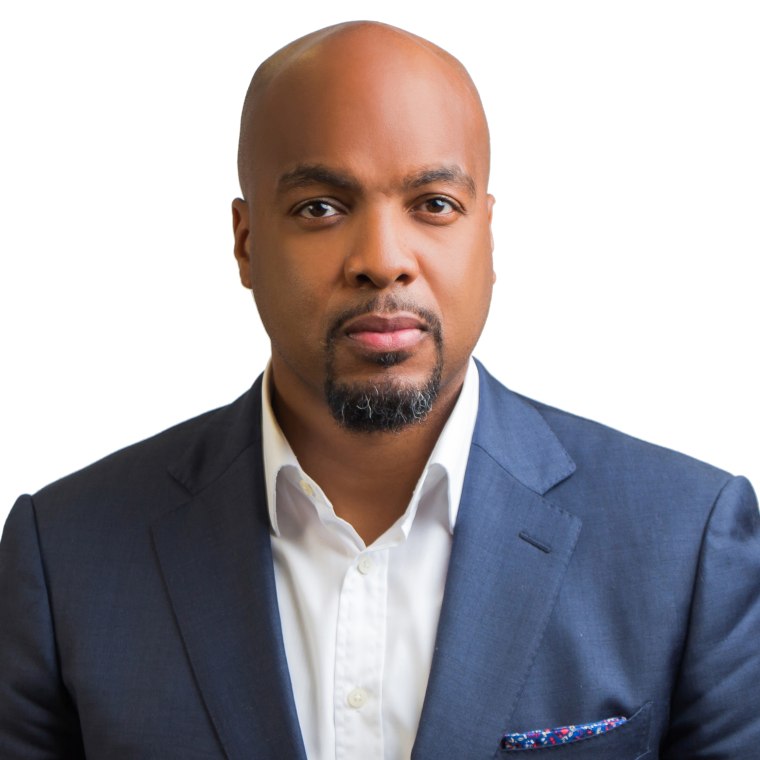
"When I was a boy my mother and I had a ritual we’d do before school each morning. She’d say, 'I am,' and I’d say, 'Somebody.' Our daily affirmation was a reminder that no matter the stereotypes, hate or ignorance that I’d undoubtedly confront as a black boy in America, I was important, I was special and my life mattered. It was an exercise in self-confidence rooted in the collective strength, beauty, brilliance and resilience of black folks like us. This month, as we reflect on our rich history, I ask you to repeat after me: I Am … Somebody."
Quiana Burns, Executive Producer, MSNBC LIVE with Ali Velshi
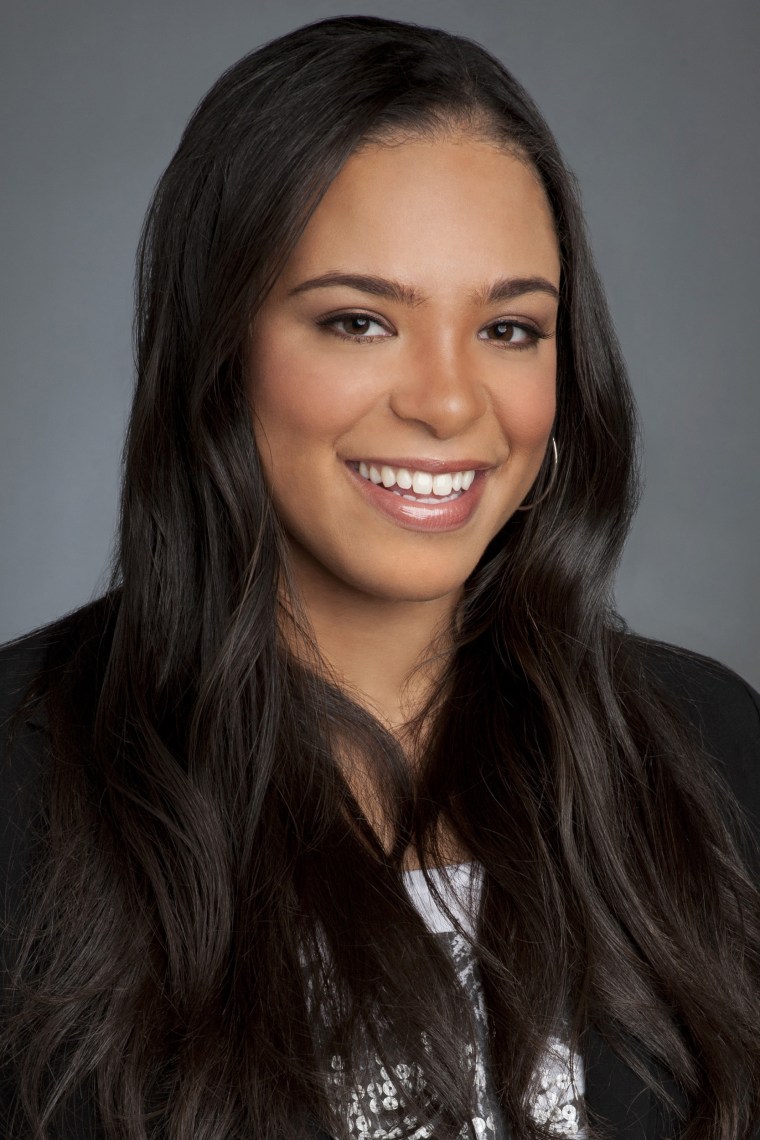
“As a young girl growing up in Milwaukee, Wisconsin, I was always taught to be proud of who I am and from where I come.
So, every month…every day I celebrate Black History.
My family’s American roots are in the heart of Mississippi, where my great grandparents were sharecroppers. It wasn’t an easy place to live. My grandmother would tell me stories of having to use wash boards to clean her clothes, walk a ways to church and having the experience no child should ever have to endure, seeing black bodies wash up in the river in the segregated south.
During the Great Migration, my grandparents relocated to Milwaukee where my grandfather started his own business. My grandparents provided my mother and her siblings with a good education and the fundamentals to succeed in life.
Now, our immediate family includes a lawyer, an interior designer, an airport driver and many others who are carrying on the legacy of hard work and determination.
Our family’s history is like many in the black community. It is a history of pain and hardships, but also one of resilience and victory. Today, more than ever, telling our stories is important. They are a reminder that we are part of the American fabric.
Black history is YOUR history. Black history is OUR history.”
Erica Ayisi, NBCBLK Contributor
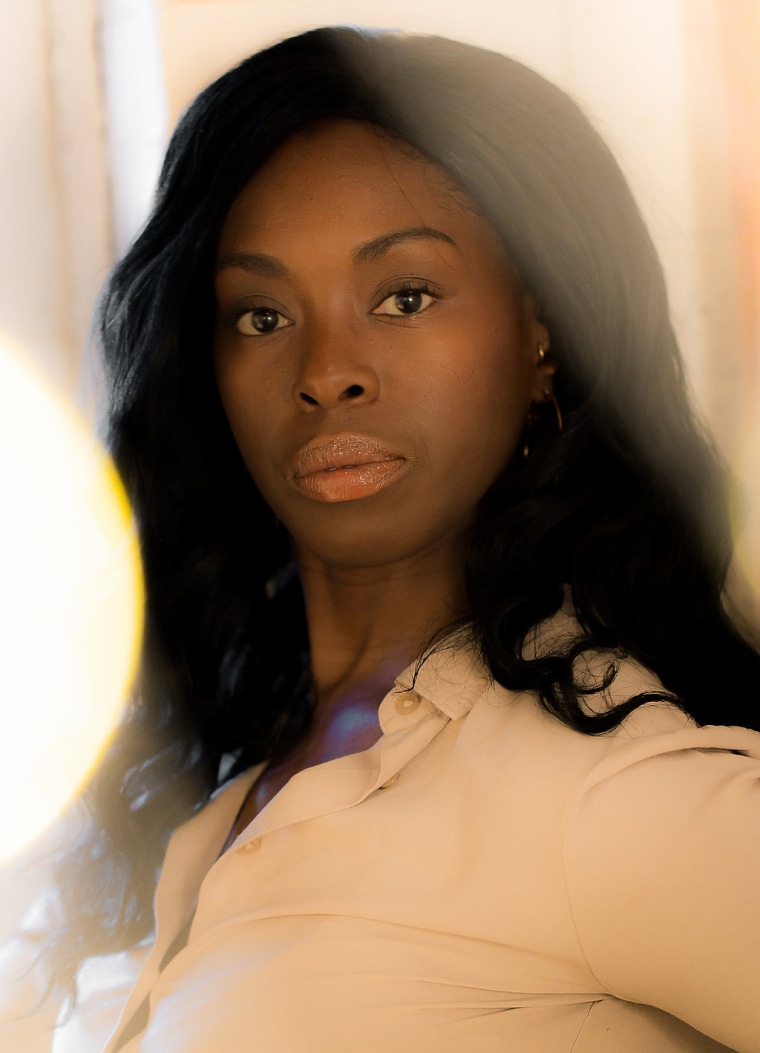
"I’m Erica Elizabeth Akosua Ayisi. “Akosua” means 'baby girl born on Sunday' from the Ashanti tribe in Ghana, West Africa that is home to my African immigrant parents. Being a first-generation American, this country is what I call home, but I know, it’s not where I’m from. Being a descendant from an African country, Black History Month, to me, means that my connection to the continent makes me no better than other blacks who are unable to connect to the native country of their origin.
These 28 days are a time for me to dig deeper into black history, beyond what oppressors define for us in their history books. As a journalist, it’s a moment for me to cover stories bridging the gap between Africans and black Americans by examining our past, strengthens, joys and fears. Our history and the black experience aren’t to be marginalized."
Morgan Radford, NBC News Correspondent
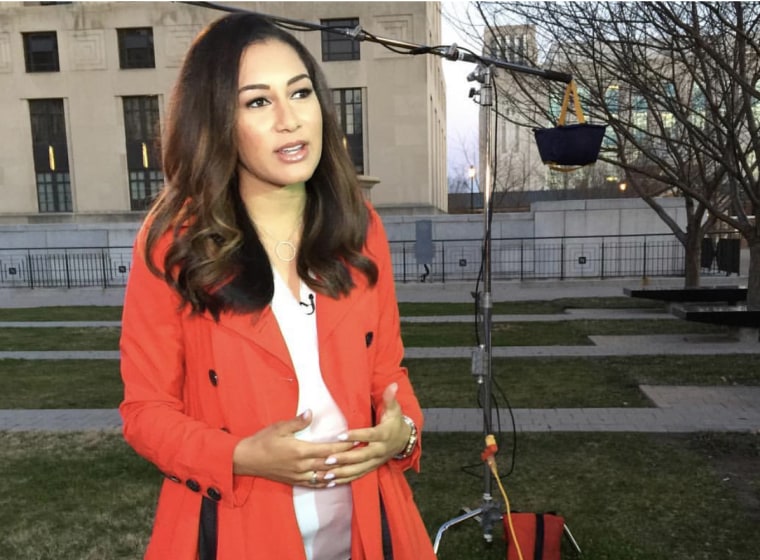
"Black History Month is about honoring a collective memory: sharing the legacy of ancestors who turned hardship into opportunity; ancestors whose contributions have not always been celebrated but whose lessons can both inspire and empower us now.
My own family includes generations of risk-takers, those who were born here and those who migrated from Jamaica to Cuba, ultimately landing in the heart of America’s coal country, hoping that if they worked hard enough and contributed long enough — their kids might have a shot at the American Dream. Their sacrifices were often quiet and overlooked, teaching us how to find a reservoir of strength inside ourselves when the odds were stacked against us.
But luckily, this Black History Month, we don’t have to look far into our past to remember these lessons, because we have active heroes among us today.
We have African-American teachers going door-to-door in some of the nation’s poorest communities, seeking coat donations to keep students warm inside their classrooms. We have NFL stars writing children’s books so that our kids can harness the power of their own imaginations. We have black directors casting some of the best artists of this generation to portray us as heroes.
The truth is, celebrating black history is not only about shining a light on these examples of strength, but also about using these examples to further widen the circle of inclusivity; extending help to those who are still fighting for their inherent freedoms to be recognized. That’s why we must tell these stories this month and every month; stories that celebrate our legacy and continue to propel us towards progress.
What will be your contribution to our next chapter?"
Dr. Shamard Charles, M.D., NBC News Medical Unit
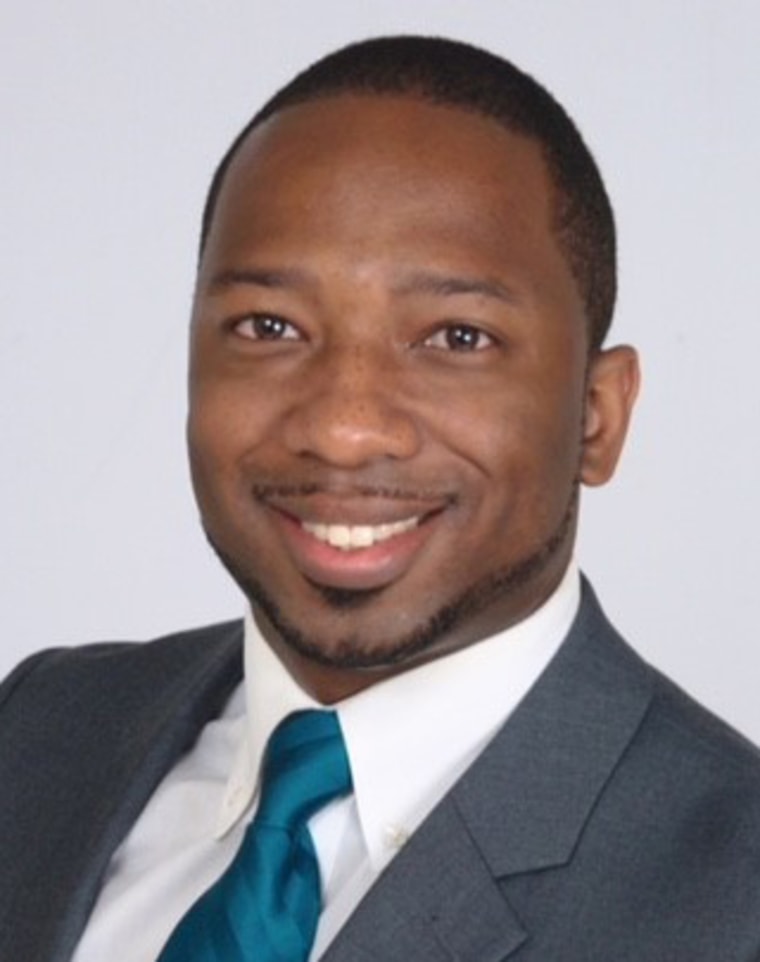
“I am a proud son of Haitian immigrants and represent one of many groups that make up our country’s unique mosaic. But as a young, black man in America, I have mixed feelings at the start of every February.
On the one hand, Black History Month is a public acknowledgement of the contributions of African-Americans to this nation’s great fabric and culture. On the other hand, African-Americans have all too often been made to feel like foreigners in the only home we know and continue to face glaring social inequality. Educational racism allows failing schools to become a staple of low-income black communities and judicial racism allows for sentencing disparities that land far too many young black males in jail for minor drug violations. ‘How can a country with so much promise allow this to take place?’ I wonder. A sobering reality indeed.
And still we must celebrate; we must remember; we must believe.
Black History Month is not about finger pointing or putting blame on who did what. It's about recognizing how we continue to overcome, despite all the obstacles put before us and to show gratitude to those who have sacrificed so much for us.
As this month continues, it is important to set personal feelings aside. Black History Month is a constant reminder to thank our heroes – mothers, fathers and grandparents for their sacrifices – and to live a life that is worthy of their investment.
To black people everywhere: Do not be discouraged. Change is painfully slow, but look around, examples of our excellence surround you. We are influencers, creatives and intellectuals. We are powerful, we are beautiful, and WE KNOW IT. Simply put, ‘We Are.’ So keep the faith and be the change you want to see."
Melissa Noel, NBCBLK Contributor
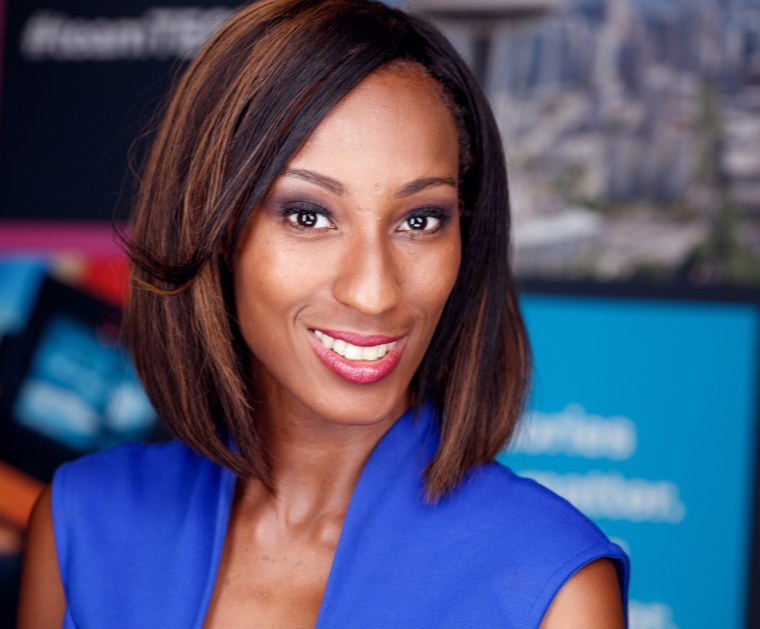
"I am the proud daughter of Guyanese immigrants who came to the United States in the 1980’s in search of a better life. I often reflect on the courage it took for them to leave Guyana and everything they had ever known to come to the U.S. in search of their American Dream.
For me, Black History Month is a not just a time to recognize and reflect on the brilliance, boldness and beauty of black people and our contributions to this nation. It is also time to celebrate the diversity our people in America, including the contributions of black immigrants.
As a first generation Guyanese-American, my family roots have given me a deep appreciation for the diversity of black people and our experiences. It has instilled in me a sense of duty, to highlight our different experiences and backgrounds, not in contrast of each but as integral parts of a larger, rich history.
During this month and every month of the year, I am proud to celebrate the melting pot of trailblazers whose sacrifices, determined spirit and willingness to work together have created a rich legacy."